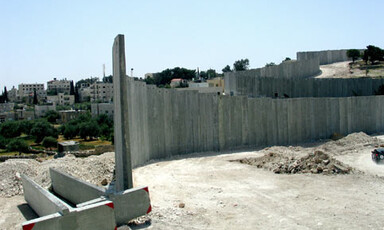
Documentary film review: "Israeli Wall in Palestinian Lands"
15 December 2004
The new documentary The Israeli Wall in Palestinian Land is a prime example of how low-cost digital technology has great potential for activists - with a small camcorder, and some decent video editing software, one can make a finished film that can be cheaply burned onto DVDs or put up on a website. Like cheap 35 mm, Polaroid, and disposable cameras democratized photography, video as a medium is now highly accessible. But whether one makes the most out of the medium is another matter. EI’s Arts, Music, and Culture Editor Maureen Clare Murphy reviews the new film for EI. Read more about Documentary film review: "Israeli Wall in Palestinian Lands"


















